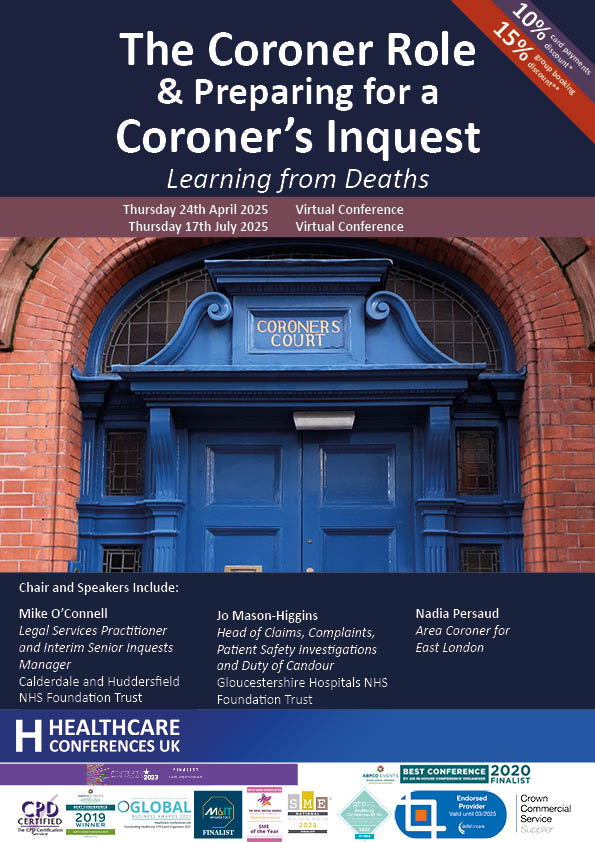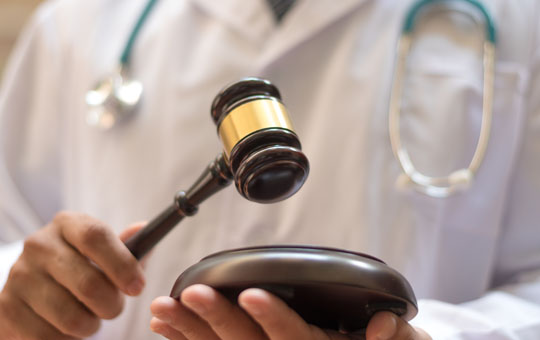Follow the conference on X #CoronerRole
This virtual conference will focus on the role of the Coroner and preparing and attending Coroner’s Inquests. Understand the role of the Coroner, develop your skills in preparing for attending an inquest including witness statements and giving evidence, understand how you can improve support for staff who have to attend inquests and ensure you are up to date with the latest practice on which cases need to be referred to the coroner, and the role of the Medical Examiner in decision making.
The conference will also update delegates on the implications of the 2024 Death Certification Reforms and roles, responsibilities and information flows under the new system.
“34% of all registered deaths were reported to coroners in 2023”
Ministry of Justice May 2024
“Engagement leads should ensure those affected are aware if there is to be a coroner’s inquest and give them information about what this will entail.”
Engaging and involving patients, families and staff following a patient safety incident NHS England
“These reforms focus on the experience for bereaved people and seek to support improvements to patient safety. Importantly for bereaved people, the introduction of a statutory medical examiner system provides an opportunity for them to raise questions or concerns with a senior doctor not involved in the care of the deceased. The statutory system will also help deter criminal activity, improve practice and ensure appropriate referrals to coroners for further investigation.
These reforms respond to multiple inquiry recommendations over many years and mark a significant change to processes for medical practitioners, registrars and coroners. Under these reforms all deaths will legally become subject to either a medical examiner’s scrutiny or a coroner’s investigation irrespective of whether the deceased is to be buried or cremated, delivering a more equal and comprehensive system of assurance. From today, all of the medical examiner system’s obligations, duties and responsibilities are enshrined in law.”
UK Parliament 9th September 2024
This conference will enable you to:
Understand the role of the Coroner
Reflect on a families experience and understand what families want from a Coroner investigation and inquest
Implications of the 2024 Death Certification Reforms
Learn from complex hospital inquests
Explore changes as a result of the Justice Committee’s Report on the Coroner’s Service
Understand the Coroner’s Investigation, Inquest & Duty to Investigate a Death
Develop your skills in preparing for attending an inquest including witness statements and giving evidence
Learn from the experience of Senior Coroners
Understand how you can improve support for staff who have to attend inquests
Identify key strategies for learning from Deaths and implementing Coroner PFD recommendations at a local level
Ensure you are up to date with the latest practice on which cases need to be referred to the coroner, and the role of the Medical Examiner in decision making
Self assess and reflect on your own practice
Supports CPD professional development and acts as revalidation evidence. This course provides 5 Hrs training for CPD subject to peer group approval for revalidation purposes
At our last event on this subject 100% of delegates would recommend the event to a colleague




